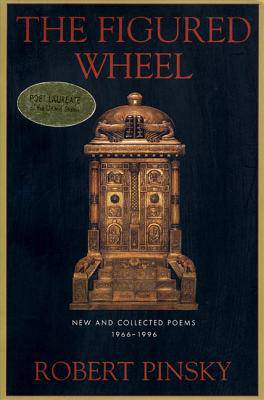
En raison d'une grêve chez bpost, votre commande pourrait être retardée. Vous avez besoin d’un livre rapidement ? Nos magasins vous accueillent à bras ouverts !
- Retrait gratuit dans votre magasin Club
- 7.000.000 titres dans notre catalogue
- Payer en toute sécurité
- Toujours un magasin près de chez vous
En raison de la grêve chez bpost, votre commande pourrait être retardée. Vous avez besoin d’un livre rapidement ? Nos magasins vous accueillent à bras ouverts !
- Retrait gratuit dans votre magasin Club
- 7.000.0000 titres dans notre catalogue
- Payer en toute sécurité
- Toujours un magasin près de chez vous
Récompenses
Description
The Figured Wheel fully collects the first four books of poetry, as well as twenty-one new poems, by Robert Pinsky, the former U.S. Poet Laureate.
Critic Hugh Kenner, writing about Pinsky's first volume, described this poet's work as "nothing less than the recovery for language of a whole domain of mute and familiar experience." Both the transformation of the familiar and the uttering of what has been hitherto mute or implicit in our culture continue to be central to Pinsky's art. New poems like "Avenue" and "The City Elegies" envision the urban landscape's mysterious epitome of human pain and imagination, forces that recur in "Ginza Samba," an astonishing history of the saxophone, and "Impossible to Tell," a jazz-like work that intertwines elegy with both the Japanese custom of linking-poems and the American tradition of ethnic jokes. A final section of translations includes Pinsky's renderings of poems by Czeslaw Milosz, Paul Celan, and others, as well as the last canto of his award-winning version of the Inferno.Spécifications
Parties prenantes
- Auteur(s) :
- Editeur:
Contenu
- Nombre de pages :
- 320
- Langue:
- Anglais
Caractéristiques
- EAN:
- 9780374525064
- Date de parution :
- 07-04-97
- Format:
- Livre broché
- Format numérique:
- Trade paperback (VS)
- Dimensions :
- 150 mm x 229 mm
- Poids :
- 430 g

Les avis
Nous publions uniquement les avis qui respectent les conditions requises. Consultez nos conditions pour les avis.








